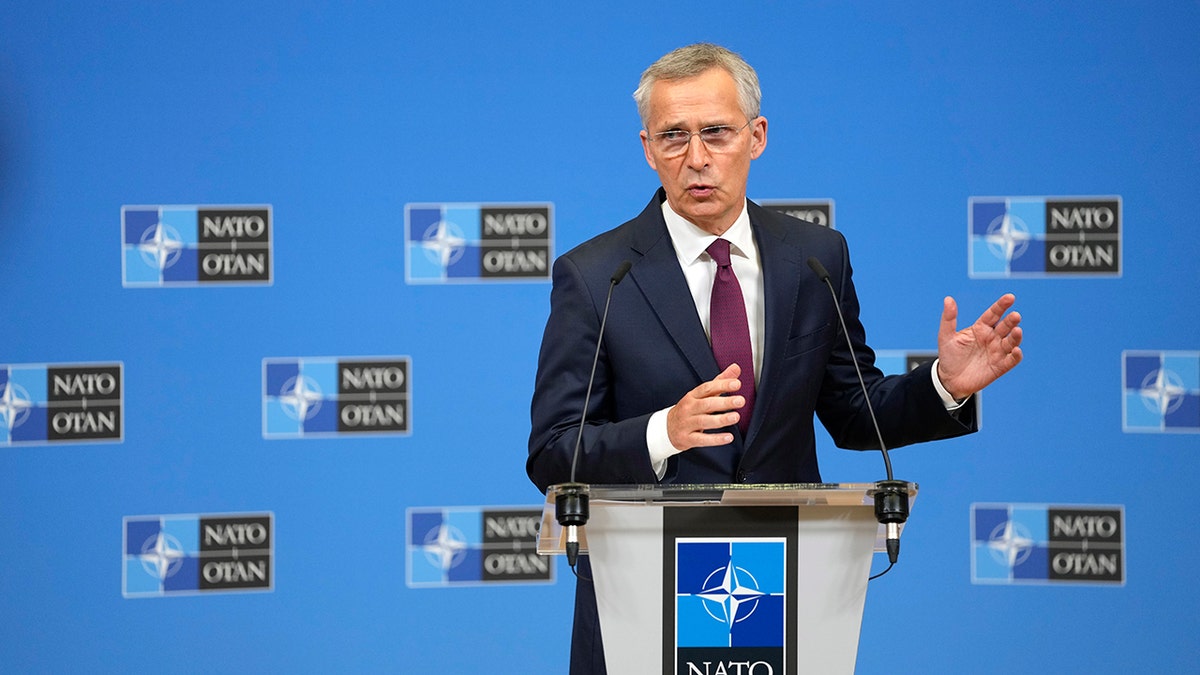NATO leaders are poised to strengthen Ukraine's armed forces through a modernization initiative, establish a high-level consultation platform, and reiterate their commitment to Ukraine's eventual NATO membership at the upcoming summit in Vilnius, Lithuania. However, immediate membership negotiations are not anticipated.
NATO Secretary-General Jens Stoltenberg announced that during the two-day summit, U.S. President Joe Biden and other leaders will also address increased defense spending as NATO members continue to provide Ukraine with weapons, ammunition, and other essential supplies.
Although the alliance had hoped to welcome Sweden as its newest member, Turkish President Recep Tayyip Erdogan's objections present an obstacle that may not be resolved in time for the summit. Even if resolved, Sweden's official accession would take several months.
Stoltenberg emphasized the summit's focus on bolstering Ukraine's capabilities and charting a course for its future, highlighting Moscow's ongoing aggression in Europe. The leaders will implement a multi-year assistance program to ensure seamless interoperability between Ukrainian and NATO forces.
The summit will also see the establishment of a NATO-Ukraine Council for crisis discussions, with Ukrainian President Volodymyr Zelenskyy attending the inaugural meeting. This council will solidify Ukraine's future membership in NATO and strategize on achieving this objective. While NATO initially pledged Ukrainian membership in 2008, tangible progress has been limited.

The timing and process of Ukraine's accession remain uncertain, with Stoltenberg emphasizing the immediate priority of ensuring Ukraine's survival. Some allies, including the U.S. and Germany, believe extending an invitation during wartime could escalate the conflict with Russia.
With dwindling military stockpiles among allies and Ukraine's urgent need for more resources, NATO is urging members to increase their defense budgets. While allies committed in 2014 to strive for 2% of GDP on defense by 2024, the Vilnius summit will set 2% as the minimum without a specified timeline. Current estimates indicate that only 11 allies will meet this target in 2023.
Despite progress in defense spending increases, Stoltenberg acknowledged the significant investment made by European Allies and Canada since 2014. Meanwhile, Sweden's NATO membership remains uncertain due to Turkey's concerns about Sweden's stance on groups Ankara deems security threats. Sweden has made several concessions, including legal and constitutional changes, but Turkey's approval is still pending.
NATO's expansion requires unanimous consent from all members, highlighting the importance of resolving the deadlock with Turkey. A meeting between Stoltenberg, Erdogan, and Swedish Prime Minister Ulf Kristersson is scheduled before the summit to address this issue. Despite international pressure, Erdogan remains steadfast in his position, emphasizing the alliance's need for loyalty to its core values and action against terrorism.
Comments(0)
Top Comments